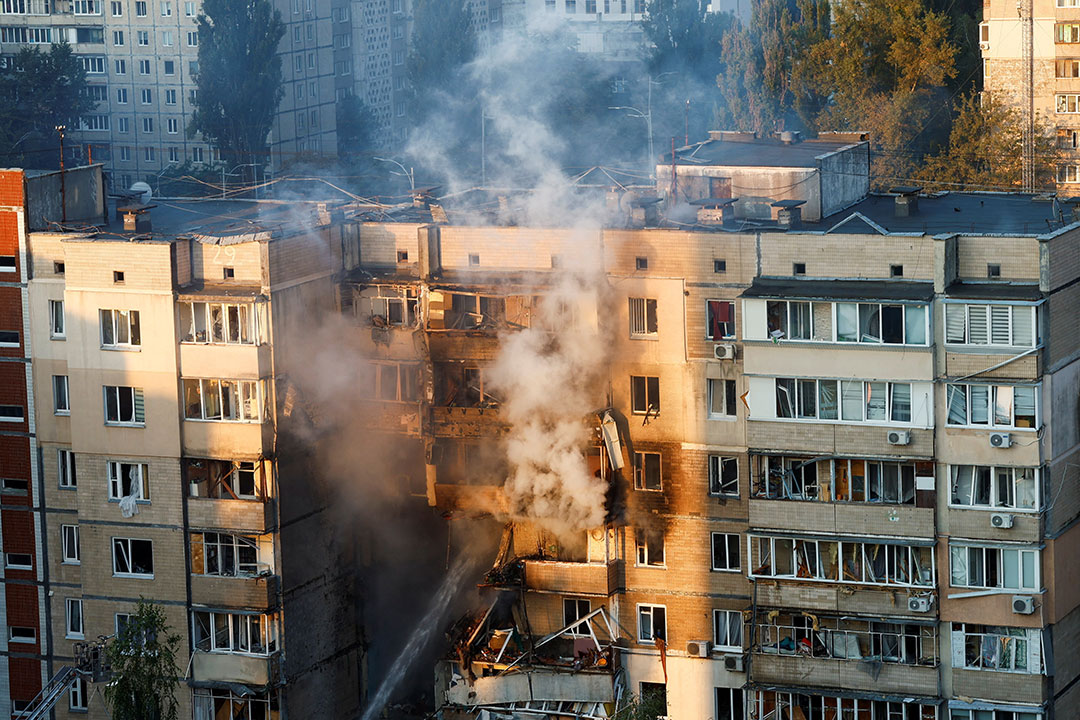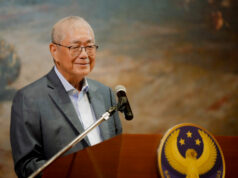Western leaders say Ukraine plan needs work, Trump signals scope for changes

JOHANNESBURG/KYIV — Western leaders said on Saturday that a peace plan proposed by the United States can be a basis for talks to end Russia’s war in Ukraine but needs “additional work,” part of Western efforts to eke out a better deal for Kyiv before a Thursday deadline.
Meeting on the sidelines of a Group of 20 (G20) summit in South Africa, European and other Western leaders scrambled to come up with a coordinated response to US President Donald J. Trump’s demand for Ukraine to accept his 28-point plan by Thursday.
Mr. Trump said in brief remarks on Saturday that his proposal was not his final offer, signaling potential room for adjustments as Ukraine and its European allies stressed that the plan could serve as a foundation for negotiations but required changes.
DRAFT MEETS MEASURED CRITICISM
The European and other Western leaders agreed that national security advisers from the E3 — France, Britain and Germany — would meet European Union (EU), US and Ukrainian officials in Geneva on Sunday for further discussions.
US Secretary of State Marco Rubio was en route to Geneva late on Saturday for the talks, a State Department official said. Italy would also send an official, diplomatic sources said.
Washington’s plan, which endorses key Russian demands, was met with measured criticism from many US allies. Leaders sought to balance praise for Mr. Trump’s attempt to end the fighting with recognition that some terms in his proposal are unpalatable for Kyiv.
“The initial draft of the 28-point plan includes important elements that will be essential for a just and lasting peace,” said the leaders of the EU, Germany, France, Britain, Canada, the Netherlands, Spain, Finland, Italy, Japan and Norway.
“We believe therefore that the draft is a basis which will require additional work,” they said in a statement.
Three US senators suggested the plan was delivered by Russia to US officials.
Senator Mike Rounds, a Republican, told reporters at a conference in Halifax, Nova Scotia, that Mr. Rubio had called him and other senators. “He made it very clear to us that we are the recipients of a proposal that was delivered to one of our representatives,” Mr. Rounds said. “It is not our recommendation, it is not our plan.”
But Mr. Rubio later posted on X that US officials authored the proposal. “It is based on input from the Russian side,” Mr. Rubio said. “But it is also based on previous and ongoing input from Ukraine.”
LEADERS ADOPT ‘LION-LIKE SPIRIT’ IN TALKS ABOUT PLAN
“There are many things that cannot simply be an American proposal, which requires broader consultation,” said French President Emmanuel Macron, adding that an agreement had to allow for peace for Ukrainians and “security for all Europeans.”
On Friday, Ukrainian President Volodymyr Zelensky said Kyiv faced a choice of either losing its dignity and freedom or Washington’s backing. He appealed to Ukrainians for unity.
That signal prompted European leaders to rally.
A German government source said they had met in a room in Johannesburg called “lion” and that the leaders had adopted the animal’s “spirit” in talks to seek a better deal for Ukraine.
German Chancellor Friedrich Merz underlined the importance to Europe of supporting Ukraine.
“If Ukraine loses this war and possibly collapses, it will have an impact on European politics as a whole, on the entire European continent. And that is why we are so committed to this issue,” Mr. Merz said on the sidelines of the G20 summit.
“There is currently an opportunity to end this war, but we are still quite a long way from a good outcome for everyone.”
On Saturday, leaders of eight Nordic and Baltic nations said they had spoken with Mr. Zelensky and pledged to keep supplying arms. In a joint statement, Denmark, Estonia, Finland, Iceland, Latvia, Lithuania, Norway and Sweden said: “Solutions that respect Ukraine’s sovereignty and that will bring Ukraine and Europe greater security and stability have our full support.”
Mr. Zelensky appealed to his country for unity.
“Now, Ukraine can face a very difficult choice — either losing dignity or risk losing a major partner,” he said in a speech to the nation on Friday. “I will fight 24/7 to ensure that at least two points in the plan are not overlooked — the dignity and freedom of Ukrainians.”
On Saturday, he signaled that security guarantees were imperative to “ensure that nowhere in Europe or the world does the principle prevail that crimes against people and humanity, against states and nations, can be rewarded and forgiven.”
On the front line, one Ukrainian soldier, 33-year-old Vitalii Traikalo, questioned why Ukraine should be forced to give up territory after three years of grueling fighting to fend off Russian assaults.
“Are we defending our borders here just to give them away? What’s the point of all this, of all these sacrifices?” He asked while manning an artillery position near the eastern Ukrainian city of Pokrovsk.
TRUMP GIVES UKRAINE A TIGHT DEADLINE
On Friday, Mr. Trump threw down the gauntlet to Ukraine, saying Mr. Zelensky had until Thursday to approve his 28-point plan, which calls on Ukraine to cede territory, accept limits on its military and renounce ambitions to join the North Atlantic Treaty Organization (NATO).
“He’ll have to like it, and if he doesn’t like it, then you know, they should just keep fighting, I guess,” he said. “At some point he’s going to have to accept something he hasn’t accepted.”
Recalling their fractious February meeting with Mr. Zelensky, Mr. Trump added: “You remember right in the Oval Office, not so long ago, I said, ‘You don’t have the cards’.”
In their statement, Western leaders said they were “concerned by the proposed limitations on Ukraine’s armed forces, which would leave Ukraine vulnerable to future attack.”
“We reiterate that the implementation of elements relating to the European Union and relating to NATO would need the consent of EU and NATO members respectively.”
At Sunday’s meeting in Geneva, European nations are keen to suggest changes to Mr. Trump’s plan, which Russian President Vladimir Putin described as the basis of a resolution to the conflict. — Reuters



